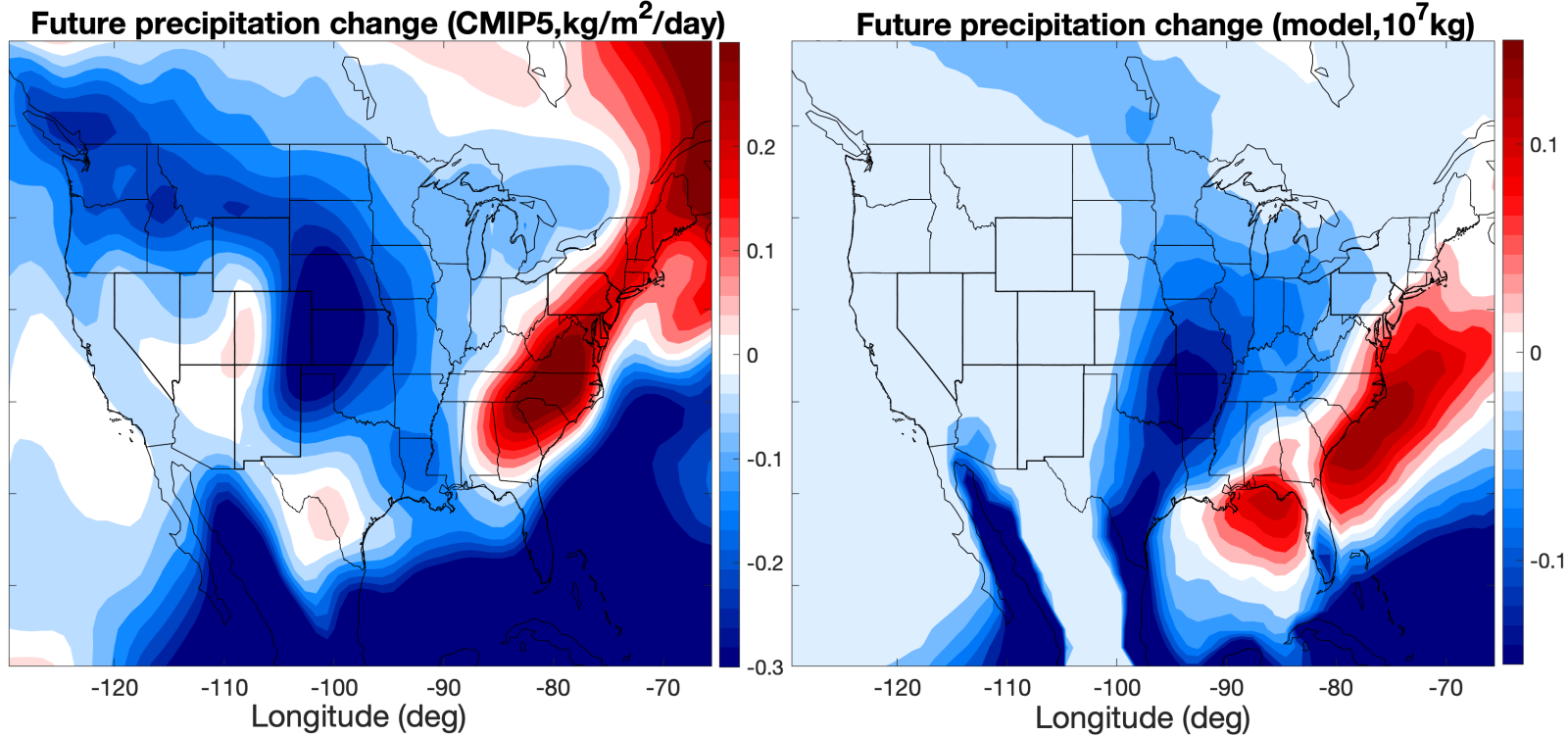Impact of Global Warming on U.S. Summertime Mesoscale Convective Systems: A Simple Lagrangian Parcel Model Perspective
Mesoscale convective systems (MCSs) are the dominant rainfall producer over the U.S. during the warm season, causing natural disasters and severe weather every year. Global climate models have large uncertainty in projecting precipitation changes in the future climate. Here we used a simple Lagrangian parcel model (single and multi-column models) to investigate the impact of global warming on MCS initiation and growth.
The single-column parcel model projects a mean precipitation decrease over the central U.S. and an increase to its east, in agreement with the CMIP5 model projection (see attached figure, the left panel shows future mean precipitation change from CMIP5 model projection, while the right panel is from our simple model result). It also highlights the crucial role of current climate mean state model bias in influencing future mean precipitation projection. As for convective population, the model captures the decreased occurrence frequency of weak to moderate convection and increased frequency of strong convection due to the increased CAPE and CIN, in agreement with convection-permitting regional simulations. The multi-column parcel model captures readily the cold pool-induced upscale growth feature. It simulates smaller mesoscale clusters over the central U.S. under global warming due to gust front slowdown and subsidence strength enhancement.
The model should be a cute tool for investigating the impact of global warming on MCS in both tropics and mid-latitudes and providing useful guidelines to improve GCM simulations.
Reference: Qiu Yang*, Ruby Leung, Zhe Feng, Xingchao Chen, 2022: Impact of Global Warming on U.S. Summertime Mesoscale Convective Systems: A Simple Lagrangian Parcel Model Perspective. Submitted to Journal of Climate.

